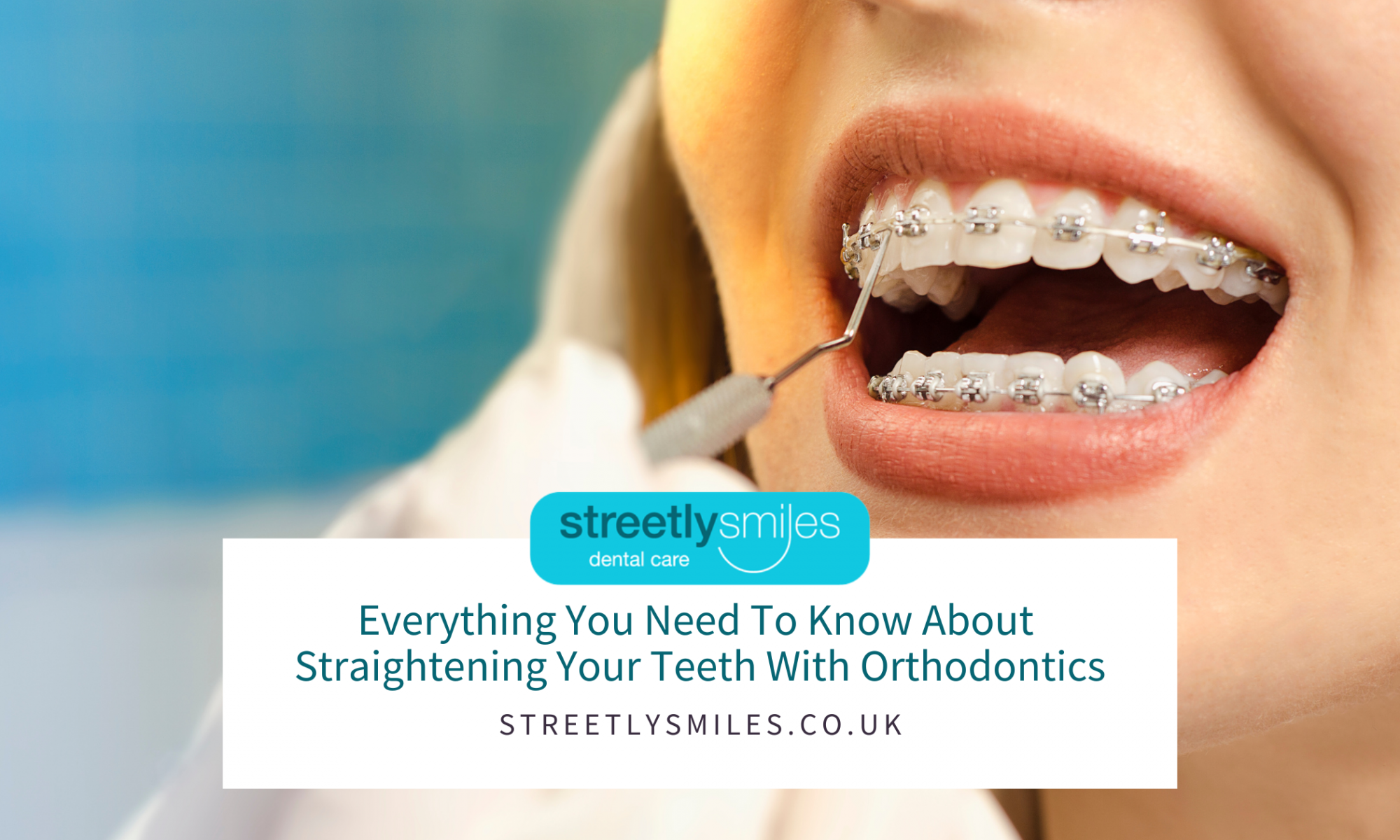Getting one’s teeth straightened is not a luxury anymore that only the rich and famous can afford. Today, straight teeth and a beautiful smile has become an essential requirement for everyone. Unfortunately, if someone has crooked or misaligned teeth, they will not be considered attractive, friendly, or approachable by their friends and colleagues. But the good news is that there are many options available to straighten one’s
How Much Time Does It Take To Straighten The Teeth?
The time taken for straightening one’s teeth depends on various factors. For example, it depends on the severity of the underlying problem, the patient’s age and compliance, and more importantly, the skill of the dentist. However, on average, mild issues may take up to 8 months for treatment while severe or complex problems may require up to 24 months for treatment. You can ask your dentist about the estimated time of treatment after a comprehensive clinical examination.
What Are The Teeth Straightening Options For Adults?
Previously, it was thought that orthodontic treatment was only suitable for teenagers and adults could not benefit from it. However, thanks to modern orthodontics, adults of any age can get their teeth straightened. Moreover, a variety of options are available for teeth straightening in adults. The two main treatment options available for adults are fixed and removable orthodontic appliances. These fixed braces are the prominent options:
- Traditional metal braces
- Ceramic braces
- Lingual braces
On the other hand, removable orthodontic appliances for adults include Invisalign aligners.
Should Crooked Teeth Be Straightened?
Yes crooked and misaligned teeth should be corrected, not just for aesthetic reasons but also to ensure optimal oral health and physical well-being. Misaligned teeth are unable to break down food into smaller pieces. As a result, the digestive system is unable to digest it produce enough energy, leading to malnutrition or indigestion. Furthermore, crooked teeth promote plaque and tartar deposition which can cause gum disease, tooth decay, and even tooth loss. Therefore, tooth misalignment, even minor, should not be taken lightly and should be corrected timely.
Why Do People Decide Not To Have Their Teeth Straightened?
There are many reasons why people decide not to get their teeth straightened. For example, a common reason is the high cost of treatment; many patients have insurance plans that do not cover orthodontic treatment or their dentists do not offer flexible payment options. Another reasons is that not many people are aware of the multitude of options available to straighten teeth, and they think that the unaesthetic metal braces are the only option. Hence, they decide not to get their teeth straightened.
How Long Do Teeth Straightening Treatments Last?
Straightening crooked teeth are the first stage of orthodontic treatment; the second and more critical step is to keep them in their new positions. This is done by asking the patients to wear removable or fixed retainer appliances. Some patients are asked to wear the retainers lifelong, while others may need to wear them for a few years. So, as long as one continues wearing their retainers, their teeth will remain straightened. On the other hand, if one does wear their retainers for the prescribed duration, there is a risk that the teeth can move backwards.
What Is The Main Cause Of Crooked Teeth?
There are many reasons for one to have crooked teeth. Among them, the most prominent reason is a hereditary predisposition. You might have seen that some families are more predisposed to having tooth alignment issues than others. Other factors that cause crooked teeth include parafunctional habits such as thumb sucking, tongue thrust, nail biting, and dietary factors.
Do Crooked Teeth Cause Cavities?
Yes, crooked teeth can cause an increased risk of tooth decay. This is because crooked teeth are difficult to clean. As a result, they are at a higher risk of plaque and tartar deposition, which predisposes them to gum disease and tooth decay.
Are You More Susceptible To Cavities After Having Braces?
Orthodontic brackets and wires make it harder to clean the tight spaces between teeth and around the brackets. Therefore, braces wearers are required to take extra care of their oral hygiene. If they ignore their regular oral hygiene, there is a higher risk of plaque and tartar deposition on the teeth, leading to tooth decay.
Can An Orthodontist Fill Cavities?
Orthodontists are dental professionals who have undergone additional training in treating alignment issues of the teeth in children in adults. However, they also undergo training to treat dental problems in dental school. So yes, orthodontists can fill teeth cavities and perform other dental procedures such as root canals and teeth cleanings. However, since they have become specialists, they focus more on their field of performing general dentistry procedures.
Can Wearing Braces Benefit Your Long-Term Dental Health?
The primary outcome of wearing braces is perfectly aligned, straight teeth, which improves one’s smile and helps one achieve optimal oral health and physical well-being. This is because aligned teeth allow one to chew food correctly, resulting in optimal food digestion and energy generation. Furthermore, aligned teeth are easier to keep clean, so braces can help one enjoy good dental health in the long term.
If you are looking for a renowned orthodontic specialist in Sutton Coldfield, Streetly Smiles is your best option, where we provide all general dental and specialist services under one roof. So, Contact us today to book your appointment with us.

